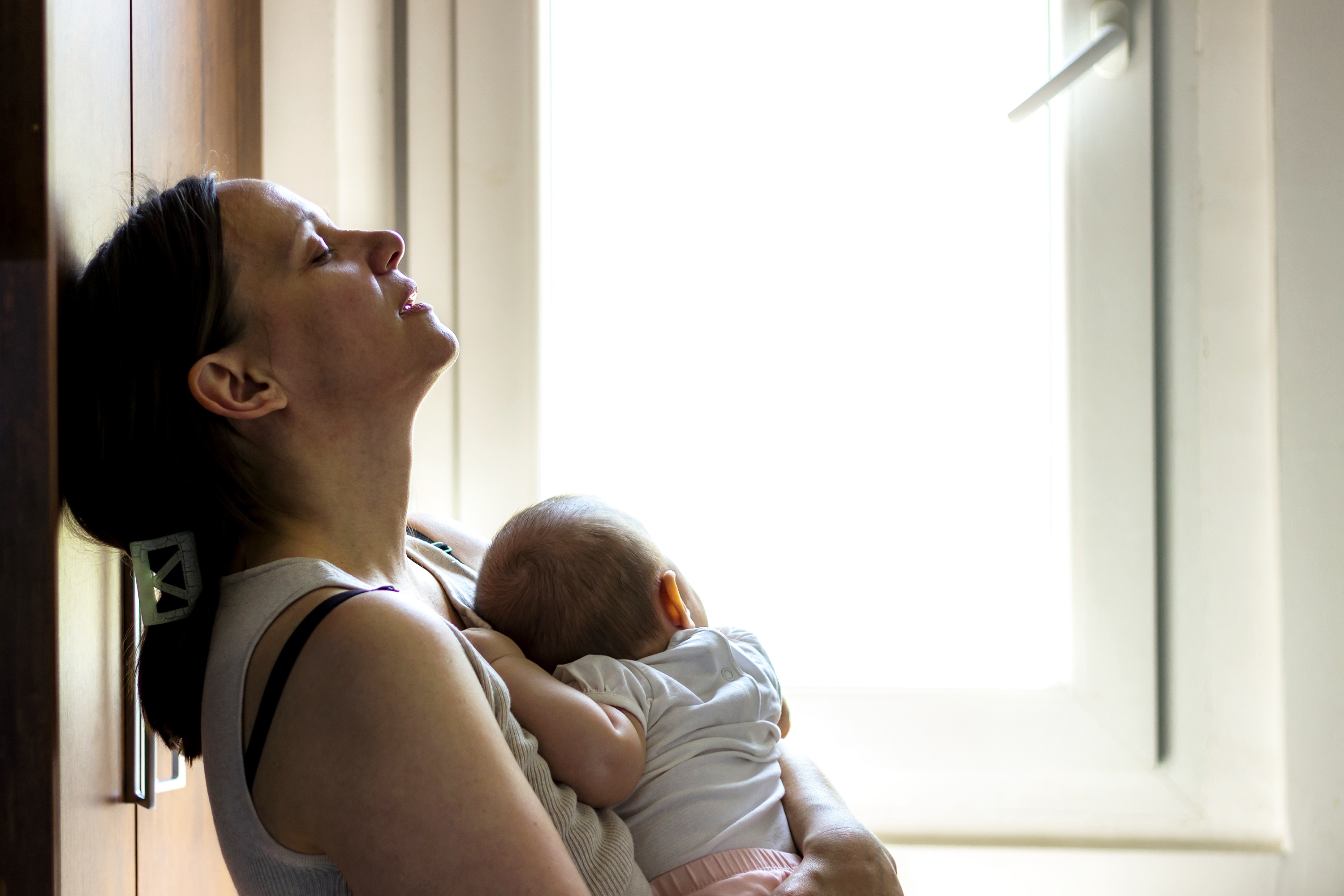Can You Avoid Postpartum Depression?

April 18, 2022
While unfortunately there’s no surefire way to ensure you won’t experience postpartum depression (PPD), there are steps you can take to make sure you are well supported.
“Having a new baby brings about all new experiences, emotions and challenges. With that, it’s beneficial for parents to set up their support systems and get a plan in place before the baby comes home,” shares Lauren Murphy, maternal mental health nurse and navigator at Hackensack University Medical Center.
7 Things Moms Can Do To Help Postpartum Depression
- Be aware of what postpartum depression is and the signs to look for.
Postpartum depression is depression after having a baby. The symptoms are longer lasting and more intense than what’s described as the “baby blues” - feelings of worry, sadness or tiredness in the days to weeks after having a baby.
A study by the CDC found that one in eight women experience symptoms of PPD.
Signs of postpartum depression can include:
- Anxiety
- Overwhelming sad thoughts
- Difficulty sleeping even while baby is sleeping
- Changes in eating habits - eating too much or not enough
- Not wanting to be around your baby
- Social isolation
- Lack of interest in things previously pleas
- Feelings of shame
- Irritability
If you have a history of depression or anxiety make sure you discuss your treatment plan with your doctor ahead of time.
Learn more about what postpartum depression feels like. - Educate your partner and loved ones about PPD.
“Educating yourself and family members about postpartum depression is so important - it won’t prevent it, but the signs and symptoms will be easier to pick up on and identify if seen,” shares Lauren. “If you’re unaware of what to look for, it’ll take longer to get the right help.” - Have a plan in place to divide and conquer your first few weeks.
While your new baby will be your main priority, you should designate in advance who will take care of certain chores at home.
“Split up tasks and identify who’s going to take the lead on certain things like laundry, walking the dog, or unloading the dishwasher. It sounds simple, but talking this through before the baby comes home can avoid some sleep-deprived frustration,” advises Lauren. - Identify friends you can always call on.
“Isolation can be a big problem for new moms so it’s so important to identify those core friends you can call on. Whether you just need to vent about how you haven’t slept in a week, or you want to share the hundredth video of your baby, keeping these connections ensures you have support when you need it,” shares Lauren. - List out activities you enjoy doing daily.
Many new moms can feel like they lose their identities in motherhood. Keeping note of what you enjoyed before being a mom can be a reminder when feeling lost.
“It can be as simple as knowing that you love a cup of tea or reading a magazine when you’re stressed. These should be little things that you know you enjoy and that you can do everyday, even if it’s just for 15 minutes,” adds Lauren. - Nourish your body with good foods and exercise.
“Not only is eating well and exercising good for your growing baby, it’s good for your mental health,” adds Lauren.
Yoga, walking, swimming or riding a stationary bike are all usually safe activities for pregnant women. During your prenatal visits, talk to your doctor about safe exercises and nutritious meal options. - Get outside.
Nature and sunlight are naturally proven effective for depression.
“Take a walk or sit outside if the weather permits. That little bit of sunshine can boost your mood and even help you sleep better at night,” adds Lauren.
Next Steps and Resources:
- Meet our source: Lauren Murphy, MSN, RN, FNP-BC, PMH-C, Maternal Mental Health APN Navigator
- To make an appointment with a doctor near you, call 800-822-8905 or visit our website.
The material provided through HealthU is intended to be used as general information only and should not replace the advice of your physician. Always consult your physician for individual care.
Find a doctor near me
What Does Postpartum Depression Feel Like?

Understand postpartum depression symptoms? Learn about anxiety, sadness, and sleep issues. Support is available. Call 800-822-8905.
Can You Breastfeed With Implants?

Breastfeeding with Implants? Dr. Kim offers advice on successful breastfeeding, even with implants. Learn how implant location impacts milk supply and get support. Call 800-822-8905.
Find a doctor near me

ER vs. Urgent Care vs. Pediatrician
When your child gets sick, it can be hard to know - should you go to the emergency room (ER), urgent care or pediatrician?

How Early Can a Baby Be Born?
Learn about premature birth. JFK Medical Center experts explain survival rates and potential long-term challenges. Get expert care.

5 Reasons Why You Should Get Vaccinated While Pregnant
You have a lot of decisions to make while pregnant. Here are 5 reasons why you should get vaccinated for COVID-19.

Common Rashes in Kids & What to Do
Common kid rashes? Dr. Farook explains treatment options and when to seek care. Learn more and schedule an appointment today.
